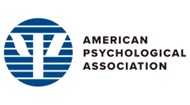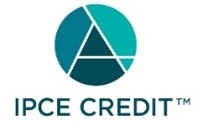Learning Management System User Guide Click Here
Lynda Reid is available Mon–Fri, 8:30 AM–4:00 PM EST at 857-262-2131. After hours, please leave a message for a next-business-day reply,
or email mghcme@mgh.harvard.edu.
This 3-hour, on-demand online course covers 5 lesser-known subtypes of Obsessive Compulsive Disorder that many healthcare providers are not aware of and often misdiagnose. These include: Sexual Orientation OCD, Suicidal/Self-harm OCD, Aggressive OCD, Relationship OCD, and Pedophilia OCD. This course focuses on differential diagnosis and will include several role plays to help demonstrate how health care workers might go about diagnosing a patient with OCD and distinguishing it from other mental health disorders. This process is crucial for treatment planning.
Obsessive Compulsive Disorder ranks in the top 10 most disabling illnesses by the World Health Organization. Obsessive Compulsive Disorder is defined by the presence of obsessions and/or compulsions that are time-consuming and/or result in significant distress or impairment. Obsessions can be persistent thoughts, urges, or images that are experienced as intrusive and unwanted. Compulsions can be repetitive behavioral or mental acts, either designed to suppress or neutralize obsessions or done according to specific rules in order to prevent or reduce distress or some dreaded event or situation.
The lifetime prevalence of obsessive-compulsive disorder is between 2 and 3% of the population. Many Primary Care Physicians, Psychiatrists, Psychologists, Social Workers, Nurses, and Nurse Practitioners will treat patients who struggle with obsessive-compulsive disorder throughout their careers. It can take as long as 14 to 17 years for people with OCD to get properly diagnosed (Stengler et al., 2013), and OCD patients are often misdiagnosed or undiagnosed rates of up to 70%, which means they aren’t receiving treatment in a timely fashion or at all. When patients get properly diagnosed, it opens the door to receiving appropriate treatment, alleviating symptoms, and improving functioning as well as preventing years of future suffering.
If you have questions related to this course or content, please contact Dr. Ragan via email at jragan@mgh.harvard.edu
MDs/Doctoral-Level/Other Professionals: $199
Residents/Students/Trainees: $159
This program is intended for: Psychologists, Psychiatrists, Social Workers, Primary care physicians, Nurses, and Nurse Practitioners
At the end of this program, participants will be able to:
Refunds may be issued up to two weeks after registration. An administrative fee of $25.00 will be deducted from your refund. Please email us at mghcme@mgh.harvard.edu with questions or concerns.
This site is operated and maintained by The Massachusetts General Hospital Psychiatry Academy. No material or information from this site may be copied, reproduced, republished, uploaded, posted, transmitted, or distributed unless approved in writing by The Psychiatry Academy. Questions concerning the proper use of materials and information on this site should be directed to: mghcme@mgh.harvard.edu. No rights or licenses of any kind of The Psychiatry Academy’s intellectual property are transferred to, granted to, provided to, or received by you as a result of using this website.
In support of improving patient care, MGH Institute of Health Professions is jointly accredited by the Accreditation Council for Continuing Medical Education (ACCME), the Accreditation Council for Pharmacy Education (ACPE), and the American Nurses Credentialing Center (ANCC) to provide continuing education for the healthcare team.
Psychologists

Continuing Education (CE) credits for psychologists are provided through the co-sponsorship of the American Psychological Association (APA) Office of Continuing Education in Psychology (CEP). The APA CEP Office maintains responsibility for the content of the programs. MGH Institute of Health Professions designates this activity for 3.0 CE credit.
Physicians
MGH Institute of Health Professions designates this live activity for a maximum of 3.0 AMA PRA Category 1 Credits ™. Physicians should claim only credit commensurate with the extent of their participation in this activity.
Nursing
MGH Institute of Health Professions designates this activity for 3.0 contact hours for nurses. The American Academy of Nurse Practitioners Certification Board (AANPCB) accepts credit from organizations accredited by the ACCME and ANCC.
Social Workers

As a Jointly Accredited Organization, the MGH Institute of Health Professions is approved to offer social work continuing education by the Association of Social Work Boards (ASWB) Approved Continuing Education (ACE) program. Organizations, not individual courses, are approved under this program. State and provincial regulatory boards have the final authority to determine whether an individual course may be accepted for continuing education credit. MGH Institute of Health Professions maintains responsibility for this course. Social workers completing this course receive 3.0 clock hours for continuing education credits.
IPCE Credit

This activity was planned by and for the healthcare team, and learners will receive 3.0 Interprofessional Continuing Education (IPCE) credits for learning and change.
1. Distinguish:
2. Describe prevalence rates of these subtypes
3. Briefly discuss treatment options for these subtypes
Speaker(s):
Dr. Jennifer Ragan

Planners:
Dr. Jennifer Ragan
David Rubin, MD
Jane Pimental, MPHJ
Reviewers:
David Rubin, MD (Content Reviewer)
Susan Sprich, PhD (Psychologist Reviewer)
The following planners, speakers, content reviewers, and others in control of educational content have reported financial relationships with ineligible companies over the past 24 months:
Susan Sprich, PhD (Psychologist Reviewer)
Royalties (Co-Author): Oxford University Press
Royalties (Co-Edited Book): Springer
Honoraria (Associate Editor): Association for Behavioral and Cognitive Therapies (ABCT)
This activity has been planned and implemented in accordance with the accreditation requirements and policies of the Accreditation Council for Continuing Medical Education (ACCME) through the joint providership of McLean Hospital and Massachusetts General Hospital. McLean Hospital is accredited by the ACCME to provide continuing medical education for physicians.
McLean Hospital designates this live activity for a maximum of 3.00 AMA PRA Category 1 Credit™. Physicians should only claim credit commensurate with the extent of their participation in the activity.
Massachusetts General Laws, Chapter 13, sections 13, 14, 14A, 15 and 15D and Chapter 112, sections 74 through 81C authorize the Board of Registration in Nursing to regulate nursing practice and education.
This program meets the requirements of the Massachusetts Board of Registration in Nursing (244 CMR 5.00) for 3.00 contact hours of nursing continuing education credit.
Advance practice nurses, please note: Educational activities which meet the requirements of the ACCME (such as this activity) count towards 50% of the nursing requirement for ANCC accreditation.
The Collaborative of NASW, Boston College, and Simmons College Schools of Social Work authorizes social work continuing education credits for courses, workshops, and educational programs that meet the criteria outlined in 258 CMR of the Massachusetts Board of Registration of Social Workers
This program has been approved for 3.00 Social Work Continuing Education hours for relicensure, in accordance with 258 CMR.
Collaborative of NASW and the Boston College and Simmons Schools of Social Work Authorization Number D91852.
This course allows other providers to claim a Participation Certificate upon successful completion of this course.
Participation Certificates will specify the title, location, type of activity, date of activity, and number of AMA PRA Category 1 Credit™ associated with the activity. Providers should check with their regulatory agencies to determine ways in which AMA PRA Category 1 Credit™ may or may not fulfill continuing education requirements. Providers should also consider saving copies of brochures, agenda, and other supporting documents.The Massachusetts General Hospital Department of Psychiatry is approved by the American Psychological Association to sponsor continuing education for psychologists.
The Massachusetts General Hospital Department of Psychiatry maintains responsibility for this program and its content. This offering meets the criteria for 3.00 Continuing Education (CE) credits per presentation for psychologists.
Expiration Date: April 17, 2027
We have a dedicated staff member who is available by phone 5 days per week between 8 am and 5 pm by calling 866-644-7792 or email at mghcme@mgh.harvard.edu. All inquiries will be dealt with in a timely (within one business day) and professional manner. Requests for credits or refunds will be reviewed by the Director of the Division of Professional and Public Education, Massachusetts General Hospital. Please refer to our cancellation policy for additional information.”